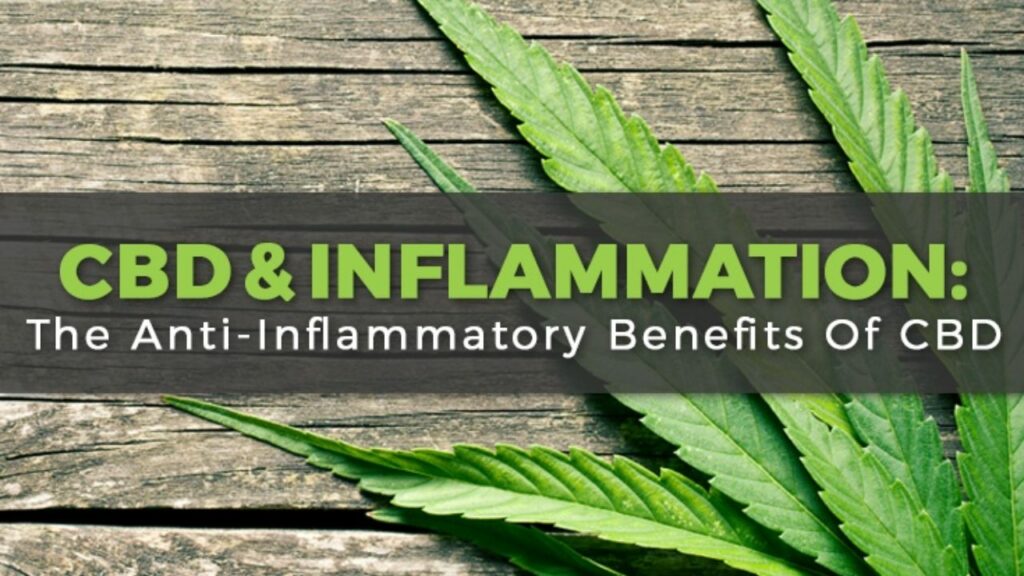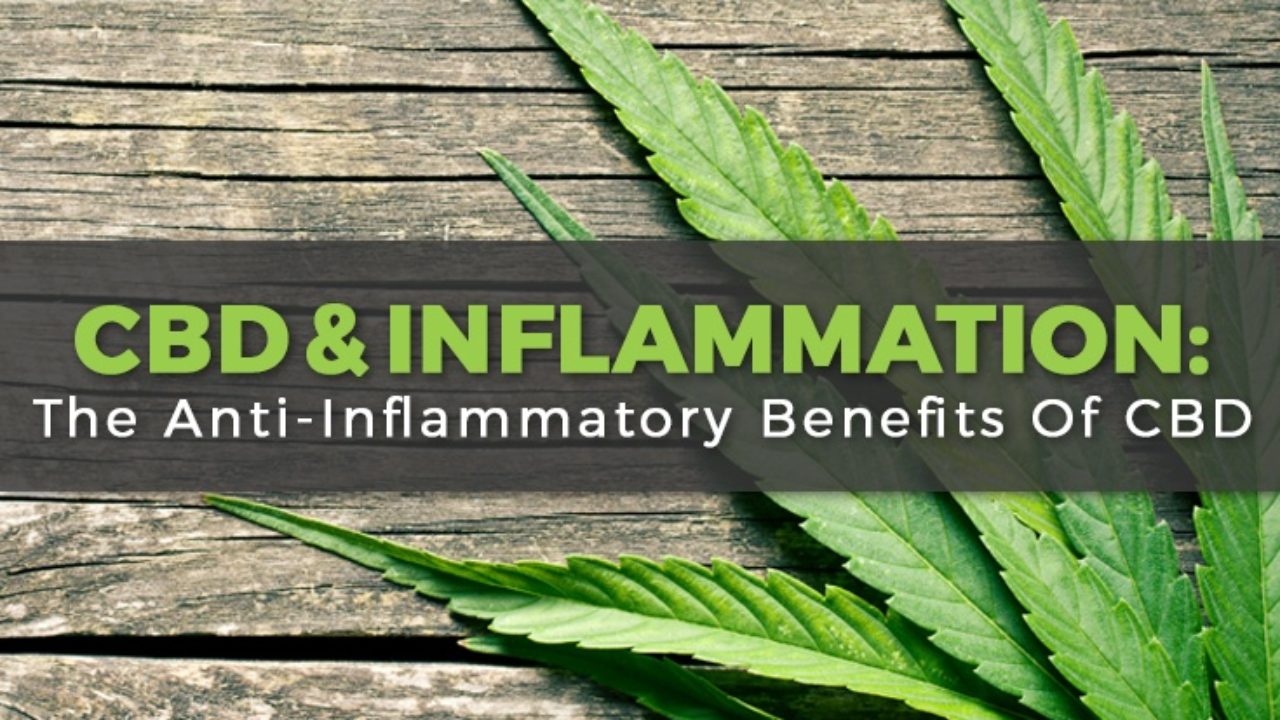Overview of CBD and its potential benefits for inflammation
In recent years, there has been a surge of interest in CBD and its potential therapeutic properties. Cannabidiol, or CBD, is a natural compound in the Cannabis sativa plant. Unlike its well-known counterpart, tetrahydrocannabinol (THC), CBD does not produce any psychoactive effects, making it an appealing option for those seeking the potential benefits of cannabis without the “high.”
One area where CBD has shown promising potential is in the realm of inflammation. Inflammation is a natural response by the body to protect itself from harmful stimuli, such as injury or infection. However, chronic inflammation can lead to many health issues, including pain, swelling, and tissue damage.
Enter CBD, a compound that has garnered attention for its purported anti-inflammatory properties. While research is ongoing, preliminary studies suggest that CBD may be able to modulate the body’s immune response and reduce inflammation in various ways.
Understanding the potential benefits of CBD for inflammation is crucial, as it may offer a natural alternative to traditional anti-inflammatory medications, which can often come with unwanted side effects. By delving deeper into the science behind CBD and exploring its potential applications, we can better understand how this compound may offer relief for those experiencing chronic inflammation.
In this comprehensive guide, we will explore the fascinating world of CBD and its potential benefits for inflammation. We will delve into the science behind inflammation, examine how CBD interacts with the body, and discuss the research surrounding CBD’s anti-inflammatory properties. Additionally, we will explore various conditions and ailments that CBD may potentially help with inflammation and provide practical tips on using CBD effectively for this purpose.
So, whether you’re seeking a natural remedy for arthritis, interested in the potential benefits of CBD for pain relief, or simply curious about the latest developments in the world of CBD, keep reading. This guide aims to provide you with the knowledge and insights needed to make informed decisions about incorporating CBD into your wellness routine. Let’s embark on this journey together and explore the potential of CBD for inflammation.
What is Inflammation?
Inflammation is a natural physiological response when the body’s immune system detects an injury or infection. It is a complex process involving various cells, chemicals, and signaling pathways. Inflammation is the body’s way of protecting itself and initiating the healing process.
The causes of inflammation can vary, ranging from acute injuries like sprained ankles to chronic conditions like arthritis. Infections caused by bacteria, viruses, or fungi can also trigger an inflammatory response. Lifestyle factors like poor diet, stress, and lack of exercise can also contribute to chronic inflammation.
During the inflammation process, the body releases chemical substances, such as cytokines and prostaglandins, which help to recruit immune cells to the site of injury or infection. These immune cells, such as neutrophils and macrophages, work to eliminate any foreign invaders and damaged cells.
While acute inflammation is a necessary and beneficial response, chronic inflammation can harm the body. Prolonged inflammation has been linked to the development of various diseases, including cardiovascular disease, diabetes, and certain types of cancer.
Understanding inflammation and its causes is essential to effectively address and manage this condition. In the next section, we will delve into CBD (cannabidiol) and explore its potential as a natural remedy for inflammation. Stay tuned!
Understanding CBD
When it comes to exploring the world of CBD and its potential benefits for inflammation, it is crucial to have a solid understanding of what CBD actually is and how it works within the body. CBD, or cannabidiol, is a natural compound derived from the hemp plant that has gained significant attention in recent years for its wide-ranging therapeutic properties.
What is CBD?
CBD is one of over 100 compounds, known as cannabinoids, in the cannabis plant. Unlike its well-known counterpart, THC, CBD does not produce any psychoactive effects, meaning it does not induce a “high.” Instead, CBD interacts with the body’s endocannabinoid system (ECS), a complex network of receptors and neurotransmitters that helps regulate various bodily functions, including pain perception, immune response, and inflammation.
How does CBD work in the body?
To understand how CBD works in the body, it’s essential to delve into the intricacies of the endocannabinoid system. The ECS consists of two primary receptors, known as CB1 and CB2 receptors. CB1 receptors are primarily found in the central nervous system, while CB2 receptors are predominantly in the immune and peripheral tissues.
When CBD is consumed or applied topically, it interacts with these receptors, although the precise mechanisms are still being studied. CBD is thought to modulate the activity of CB1 and CB2 receptors, influencing the release of neurotransmitters and reducing inflammation. Additionally, CBD may stimulate the production of endocannabinoids, naturally occurring cannabinoids within the body that help maintain balance and homeostasis.
Research suggests that CBD’s anti-inflammatory properties stem from its ability to inhibit the production of inflammatory molecules and promote the release of anti-inflammatory molecules. By doing so, CBD may help regulate the immune response and alleviate the symptoms associated with inflammation.
Understanding the mechanisms behind CBD’s action in the body allows us to appreciate its potential therapeutic effects, particularly in addressing inflammation. However, it’s important to note that while CBD shows promise, more research is needed to fully understand its effects and establish its efficacy in treating various conditions.
In the following sections, we will explore the research on CBD’s anti-inflammatory properties and discuss the conditions and ailments for which CBD may offer relief. Additionally, we will delve into the different forms of CBD products available and the appropriate dosage and administration methods for using CBD in the context of inflammation. So, stay tuned for a comprehensive guide on harnessing the power of CBD for inflammation relief.
CBD for Inflammation
When it comes to combating inflammation, CBD has emerged as a promising natural remedy. Extensive research has been conducted to explore the anti-inflammatory properties of this compound, revealing its potential to provide relief for various conditions and ailments.
Numerous studies have indicated that CBD possesses powerful anti-inflammatory effects. It interacts with the body’s endocannabinoid system, a complex network of receptors and chemicals that helps regulate various bodily functions, including inflammation. By interacting with these receptors, CBD can help modulate the immune response and reduce inflammation.
CBD has shown promise in alleviating inflammation associated with numerous conditions and ailments. Conditions such as arthritis, fibromyalgia, and multiple sclerosis, which involve chronic inflammation, may benefit from the anti-inflammatory properties of CBD. Additionally, individuals suffering from inflammatory skin conditions like acne and eczema have reported symptoms improved after using CBD products.
It’s important to note that while CBD may help with inflammation, it is not a cure-all. Each person’s body chemistry is unique, and the effectiveness of CBD in reducing inflammation may vary. It’s always advisable to consult with a healthcare professional before incorporating CBD into your wellness routine.
Various forms of CBD products are available when CBD is used for inflammation. These include CBD capsules, CBD tinctures, CBD edibles, and even CBD gummies. Each form offers advantages and may be more suitable for individuals based on their preferences and needs.
Determining CBD’s dosage and administration method for inflammation can be a personal journey. Factors such as the severity of inflammation, individual tolerance, and desired effects should be considered. It’s recommended to start with a low dosage and gradually increase it until the desired relief is achieved. However, following the recommended dosage guidelines and consulting with a healthcare professional for personalized advice is crucial.
While CBD is generally well-tolerated, it’s important to be aware of potential side effects. These may include dry mouth, drowsiness, and changes in appetite. It’s worth noting that these side effects are typically mild and temporary. However, it’s essential to be aware of any potential interactions with medication, as CBD can affect how certain medications are metabolized. It’s always advisable to consult with a healthcare professional before using CBD if you take any medication.
When choosing CBD products for inflammation, it’s crucial to consider several factors. These include the product’s source, quality, and third-party lab testing. Understanding lab reports and quality standards can help ensure that you purchase a reputable CBD product that is free from contaminants and meets your specific needs.
In conclusion, CBD has shown promise in its ability to combat inflammation and relieve various conditions and ailments. Extensive research supports its anti-inflammatory properties, making it an appealing option for those seeking natural alternatives. However, it’s important to cautiously approach CBD for inflammation and consult a healthcare professional to determine the most effective approach for your needs.
You can visit Mr. Mean Green’s CBD Facts page to learn more about CBD and its potential benefits.
How to Use CBD for Inflammation
When it comes to utilizing CBD for inflammation, understanding the different forms of CBD products and the appropriate dosage and administration methods is essential. With a wide range of available options, choosing the most suitable one for your needs is important.
Different Forms of CBD Products
CBD is available in various forms, allowing individuals to choose the method that aligns with their preferences and lifestyle. Some of the most common forms of CBD products include:
- CBD oil: This is one of the most popular and versatile forms of CBD. It is typically consumed by placing a few drops under the tongue, allowing for fast absorption into the bloodstream. CBD oil can also be added to beverages or food for consumption.
- CBD capsules: These are convenient and easy-to-use capsules that contain a pre-measured dose of CBD. They are swallowed like any other pill and are a great option for individuals who prefer a consistent dosage.
- CBD edibles: CBD-infused edibles, such as gummies or chocolates, are a tasty and discreet way to consume CBD. They offer a predetermined dosage and are a popular choice for those who enjoy a sweet treat while reaping the benefits of CBD.
- CBD topicals: CBD topicals come in creams, lotions, or balms applied directly to the skin. They are primarily used for localized relief and can effectively target specific areas of inflammation.
- CBD tinctures: Similar to CBD oil, tinctures are alcohol-based extracts of CBD. They are administered sublingually by placing a few drops under the tongue for rapid absorption.
- CBD vaping: CBD e-liquids or vape oils are designed to be used with vaporizers or electronic cigarettes. Vaping allows for quick absorption of CBD into the bloodstream through the lungs.
Each form of CBD product has its unique advantages and considerations. It’s important to choose the form that aligns with your preferences, lifestyle, and desired method of consumption.
Dosage and Administration Methods
Determining the appropriate CBD dosage for inflammation can vary from person to person, as it depends on factors such as body weight, individual tolerance, and the severity of inflammation. It is always recommended to start with a low dosage and gradually increase it as needed.
CBD dosage can be measured in milligrams (mg), and it’s crucial to follow the product’s instructions or consult a healthcare professional for personalized guidance. Additionally, it’s worth noting that CBD dosage may also vary depending on the form of CBD product being used.
Regarding administration methods, sublingual consumption (placing CBD oil or tincture under the tongue) allows rapid absorption into the bloodstream. This method often provides quicker relief than oral consumption, where CBD must pass through the digestive system.
For those seeking localized relief, applying CBD topicals directly to the affected area allows for targeted application. This can be especially beneficial for reducing inflammation in specific joints or muscles.
It’s important to remember that everyone’s body is unique, and finding the right dosage and administration method may require some experimentation. It’s advisable to start with a conservative dosage and gradually increase it if necessary while closely monitoring the effects.
By understanding the different forms of CBD products and the appropriate dosage and administration methods, individuals can effectively incorporate CBD into their routine and potentially experience relief from inflammation. Remember to consult with a healthcare professional for personalized advice and guidance.
For more information on CBD and its potential benefits, check out our article on what is CBD.
Safety and Side Effects
When considering the use of CBD for inflammation, it is crucial to be aware of the potential side effects and interactions with medication. While CBD is generally well-tolerated by most individuals, it is essential to understand how it may affect you personally.
Potential Side Effects of CBD
Although CBD is generally considered safe, some individuals may experience mild side effects. These can include drowsiness, dry mouth, nausea, and changes in appetite. It is important to note that these side effects are typically mild and temporary. However, if you experience any severe or persistent side effects, it is advisable to consult with a healthcare professional.
Furthermore, knowing the potential interaction between CBD and certain medications is important. CBD can interact with enzymes in the liver responsible for metabolizing medications, potentially affecting their effectiveness or causing adverse reactions. Therefore, it is crucial to consult with your healthcare provider before incorporating CBD into your routine, especially if you are taking medications.
Interactions with Medication
CBD can interact with various medications, including blood thinners, antidepressants, antiepileptic drugs, and immunosuppressants. These interactions can occur because CBD affects the same liver enzymes metabolizing many medications.
For example, CBD may increase the blood-thinning effects of anticoagulant medications, potentially leading to an increased risk of bleeding. Similarly, CBD may enhance the sedative effects of certain antidepressants or antiepileptic drugs, potentially causing excessive drowsiness or sedation.
Discussing CBD with your healthcare provider is crucial to ensure your safety and optimize the effectiveness of your medications. They can provide personalized guidance based on your medical history and medication regimen.
Remember: It is crucial to consult with a healthcare professional before incorporating CBD into your routine, especially if you are taking any medications. They can help you navigate any potential interactions and ensure your overall well-being.
The next section will provide helpful tips for choosing CBD products for inflammation. Stay tuned!
CBD side effects | CBD interactions
Tips for Choosing CBD Products for Inflammation
When selecting CBD products for inflammation, several important factors must be considered. With the ever-growing market offering a wide range of options, it can be overwhelming to make the right choice. However, by keeping a few key considerations in mind, you can ensure that you purchase high-quality CBD products that effectively manage inflammation.
Factors to Consider When Selecting CBD Products
1. Source and Quality: The source of CBD is crucial in determining its quality and effectiveness. Opt for products derived from organically grown hemp plants, as they are more likely to be free from pesticides and other harmful chemicals. Look for brands that provide third-party lab reports, which offer transparency and verify the product’s quality and purity.
2. Extraction Method: The method used to extract CBD from hemp plants can impact the overall quality of the product. CO2 extraction is the gold standard, ensuring a pure and potent CBD extract without harsh solvents. This method preserves the beneficial compounds of the hemp plant, including cannabinoids, terpenes, and flavonoids.
3. CBD Concentration: The concentration of CBD in a product is an important factor to consider. Different individuals may require different strengths depending on their specific needs. Start with a lower concentration and gradually increase it until you find the optimal dosage that works for you. CBD dosage
4. Spectrum Type: CBD products come in three main spectrum types: full-spectrum, broad-spectrum, and CBD isolate. Full-spectrum CBD contains all the naturally occurring compounds in hemp, including THC (within legal limits), which can provide an entourage effect. Broad-spectrum CBD retains most of these compounds but is THC-free. CBD isolate, on the other hand, contains only pure CBD. Consider your personal preferences and any specific requirements when choosing a spectrum type. Broad-spectrum CBD
5. Product Form: CBD products are available in various forms, including oils, CBD capsules, CBD edibles, topicals, and CBD tinctures, among others. Consider the convenience and ease of use that each form offers. For example, if you prefer a discreet and portable option, CBD capsules or gummies may suit you. Topicals such as creams or balms may be more appropriate if you prefer targeted relief.
6. Reputation and Reviews: Research the brand’s reputation and read customer reviews before purchasing. Look for brands with positive feedback and a track record of providing high-quality CBD products. Pay attention to reviews that specifically mention the product’s effectiveness in managing inflammation.
7. Price: While price should not be the sole determining factor, it’s important to consider the value you are getting for your money. Compare prices across different brands and products to ensure a fair deal. Remember that high-quality CBD products may come at a slightly higher price due to the manufacturing processes and quality of ingredients.
Understanding Lab Reports and Quality Standards
When choosing CBD products, it’s essential to understand how to interpret lab reports. Third-party lab reports provide an unbiased analysis of the product’s contents, including its CBD concentration, presence of other cannabinoids, and potential contaminants. Look for products that have batch-specific lab reports easily accessible on the manufacturer’s website or upon request.
Additionally, familiarize yourself with quality standards and certifications within the CBD industry. Look for products manufactured in facilities that follow Good Manufacturing Practices (GMP) guidelines. These guidelines ensure that the products are produced in a clean and controlled environment, adhering to strict quality standards.
By considering these factors and understanding lab reports and quality standards, you can confidently choose CBD products that are reliable, effective, and safe for managing inflammation.
Remember, it’s always a good idea to consult with a healthcare professional before incorporating CBD into your wellness routine, especially if you have any underlying health conditions or are taking medication that may interact with CBD. CBD interactions
The next section will explore the potential safety considerations and side effects associated with CBD use for inflammation.
Conclusion
In conclusion, CBD has emerged as a promising natural remedy for inflammation. Throughout this comprehensive guide, we have explored the potential benefits of CBD for inflammation and gained a deeper understanding of how it works in the body.
CBD, or cannabidiol, is a non-intoxicating compound derived from hemp. It interacts with the body’s endocannabinoid system, which regulates various physiological processes, including inflammation. By stimulating cannabinoid receptors in the immune system, CBD may help reduce inflammation and alleviate associated symptoms.
Research has shown that CBD possesses significant anti-inflammatory properties. Studies have demonstrated its potential to mitigate inflammation in arthritis, fibromyalgia, and cancer. While more research is needed to fully understand the extent of CBD’s effectiveness in managing inflammation, the existing evidence is promising.
When it comes to using CBD for inflammation, various forms are available on the market. CBD oil, capsules, gummies, and edibles are popular choices. The dosage and administration methods may vary depending on the individual and the severity of inflammation. It is always recommended to start with a low dose and gradually increase as needed.
While CBD is generally well-tolerated, it is important to be aware of potential side effects. These may include dry mouth, drowsiness, and changes in appetite. It is advisable to consult with a healthcare professional before incorporating CBD into your regimen, especially if you are taking any medications that may interact with CBD.
When selecting CBD products for inflammation, it is crucial to consider factors such as the product’s quality, source, and manufacturing process. Understanding lab reports and quality standards can help you purchase a reliable and effective product.
In summary, CBD holds immense potential as a natural remedy for inflammation. Its anti-inflammatory properties and minimal side effects make it an attractive option for those seeking alternative solutions. However, it is important to approach CBD use cautiously and seek guidance from healthcare professionals to ensure safe and effective usage.
Check out our CBD facts section to learn more about CBD and its various applications. Remember, knowledge is power when making informed decisions about your health and wellness.





